Table of Contents
Introduction
Some might think sleep is a waste of time or that lazy people only sleep. But like food, water, oxygen and sex, SLEEP IS A BASIC NEED OF THE BODY. I call Sleep as Night Duty Dr Whizz as it fixes us while we sleep.
We heal while we sleep. Who knows? In future, Doctors may prescribe Sleep as Medicine to treat various dis-eases because of its health benefits. In this blog, we gonna see the jaw-dropping benefits of sleep and in the end, you will be convinced that sleep is a superpower that we all have and that sacrificing sleep is wrong.
| We need sleep to survive. “SLEEP BETTER TO BE BETTER”. |
Sleep has a two-way effect on our health. If you sleep enough you will get the delicious benefits of sleep; if you don’t, you will have to face the negative consequences.
Who doesn’t wanna pay hospital bills? Who wants simple and effective treatment for the health issues you may be facing? Be ready Sapiens, here comes the 1 solution for various health issues you might be dealing with.
Health Benefits of sleeping
MEMORY PROCESSING
Do you wanna remember important dates and don’t wanna upset your loved ones? Sleep well
Let’s see how we remember and why we forget. During NREM sleep, especially during the N2 and N3 stages, the file-transferring process takes place.
Transfer and secure files
While awake, whatever we see, learn and do are temporarily stored in our brain’s low storage area (Hippocampus) for a short period. While sleeping, those memories are transferred from the low storage area to our brain’s largest vault (Cortex) for long-term storage.
Blend memories
During NREM sleep, memories are shifted and stored securely. During REM sleep our brain fuses these current memories with pre-existing memories which makes us understand complex details better with a clear view. It’s like going to sleep with an unsolved puzzle and waking up with a solution.
For example, you might study/work on a topic for a week without getting a clear understanding, but after a restful good night’s sleep, you often find that you have a clear understanding and new insights on that topic.
| Sleep insufficiency attacks the hippocampus in our brain. So, if we don’t sleep enough, we can’t hold new information and remember it even for a short period. |
Who wanna remember everything you studied and score good marks?
Sleep to remember
Sleeping before the study will empty the low storage area for the incoming memories by shifting the pre-existing memories to the vault. As the storage area is vacant, you can learn further because your brain is now ready to receive new information.
Remember to Sleep
Sleeping after the study safely shifts the memories to the vault, the next day they will be remembered better, as they have been properly filed.
| Research shows sleeping before and after a study period helps us learn and remember better. |
health benefits of sleeping
Have you ever struggled to recall something for a day or so? And suddenly it will pop into your mind after a good night’s sleep.
| Memories formed without sleep are weaker memories which means they are forgotten easily |
health benefits of sleeping
If we get enough good night’s sleep, our brain will effectively store and organize the memories and help us recollect the previous day’s events more precisely. I hope now you understand, what causes long-term memory loss. Have enough good night’s sleep to remember everything.
DETOXING YOUR BRAIN
No one wants to forget their memories with loved ones when they get older. Are you struggling to recall? Sleep well
One condition that steals away our precious memory is Alzheimer’s dis-ease and in 2021, the World Health Organization classified Alzheimer’s as the 7th leading cause of death. No one wants to have Alzheimer’s when they get old including myself, right?
Actually, we can prevent ourselves from getting Alzheimer’s by sleeping. Let’s see how sleep acts as preventive therapy.
Do you know we generate waste within our bodies?
Waste generation
We know we are made of millions of cells and we remain alive as these cells work effectively. However, while working these cells also produce wastes like adenosine and sticky proteins such as beta-amyloid plaques and tau tangles etc in our brain.
| Beta-amyloid plaques and Tau tangles found in the brain are the hallmarks of Alzheimer’s dis-ease. These sticky wastes are produced in our brains while awake and can cling to the nerves which disturbs their normal functions. |
health benefits of sleeping
So, how are these wastes cleared?
Cleaning system
Does anyone know our brain has a separate cleaning system? The great Glymphatic system is our brain’s cleaning system which only does the night shift, which means this system functions only while we are asleep and remains inactive throughout the awake period.
| The glymphatic system works only during Deep NREM sleep. |
Employees of the Brain Cleansing Department (BCD)
The glymphatic system consists of Cerebrospinal fluid (CSF) and Interstitial fluid (ISF). CSF surrounds the whole brain and spinal cord while ISF is found in between the spaces of cells.
| Research shows that CSF activity is 90% suppressed during the awake period and it is effectively active during sleep. |
How do BCD employees work?
The wastes produced by our cells while awake are thrown out of the cell into the ISF. During sleep, those wastes in the ISF are delivered to the CSF.
From CSF the wastes are passed on to the lymphatic system (Body’s cleaning system) and from there they are thrown out of the body mostly via urine.
| During sleep, our brain cells shrink in size which makes it easy for the CSF to run and flush through the furrows and bumps of the brain. |
If we have enough sleep, especially deep NREM sleep, those sticky wastes along with other wastes in our brain will be emptied cleanly. And that’s how sleep prevents us from becoming an Alzheimer’s patient.
What if we haven’t had enough sleep?
If we don’t sleep enough the opposite happens. The wastes won’t be cleared and they stick to the nerves, stopping them from functioning normally.
| Research shows that sleep-deprived individuals had elevated levels of beta-amyloid and tau protein in their CSF. |
Those sticky wastes accumulate in different regions of the brain, particularly in the region from where deep sleep emerges, the prefrontal area. This region is also in charge of rational thinking.
When this region is piled up with sticky wastes, it disturbs normal functions like developing deep sleep which is essential for cleansing the brain and rational thinking which is necessary to make a clear decision.
Sleep insufficiency constructs Alzheimer’s patients
Sleep insufficiency increases waste build-up and waste accumulation further disturbs the rise of deep sleep. As sleep deficiency dumps up the prefrontal area with waste and attacks the hippocampus, we can’t get deep sleep, clear up waste, think logically, learn new things and remember them.
Have a good night’s sleep to cleanse your brain, prevent waste accumulation, protect the hippocampus and think logically.
BE MINDFUL
Do you zone out often even if you don’t want to? Sleep well
When we sleep enough, our brain clears waste effectively, empties the hippocampus to receive incoming messages and prevents waste accumulation in the prefrontal area. The prefrontal area of our brain is responsible for concentration, logical thinking and cognitive functions.
If we have enough sleep we can easily focus and grasp every information. Sleep enough to stay alert during the day. But what if we don’t get enough sleep?
Sleep attack
If we don’t sleep enough we will be attacked with microsleeps. This means we fall asleep for a few seconds without our knowledge. Studies show during microsleep, we lose vision for a few seconds.
No more accidents
No one wants to cause an accident intentionally, but sleep deprivation will make us do so. If we are sleep-deprived, we are more likely to be shot by microsleeps and lose vision for seconds which will become the perfect time for us to be involved in accidents.
| Research shows after 16 hours of being awake without sleep our brain fails to function normally. More than 7 hours of sleep is essential and a must to maintain cognitive functions. |
Don’t drive while drowsy: If you feel sleepy while driving, pull over and take a nap for 20 – 50 minutes. After waking up, wait for 30 minutes to overcome the grogginess of sleep before you start driving. This method will help you drive safely.
Have a good night’s sleep to stay focused, remain alert and prevent accidents.
DREAM TO HEAL
Do you wanna delete some terrible memories? Who else doesn’t wanna cry over the same thing again and again? Who wanna move on? Sleep well
Will you believe me if I say “Dream heals you and makes you stronger”? Yes, dreaming is nighttime therapy that heals our emotional wounds and provides us with solutions that our walking mind can’t discover. [ health benefits of sleep ]
How do dreams heal us and make us stronger?
Decoding memories
We have dreams in the REM sleep stage and we already know REM sleep merges the previous memories with the current ones to help us make sense of events. While blending memories, dreams just strip away the emotions from memories, like peeling the skin from fruit.
Dreams heal us, not time
That’s why we no longer feel the same emotional intensity about a memory that once affected us deeply. If we have enough REM sleep, it will heal our emotional wounds and help us to move on.
But sometimes why we can’t overcome some memories?
One thing is not getting enough sleep. The second thing is certain memories raise our stress hormone (noradrenaline) level, normally this hormone should be at a low level for us to sleep peacefully. Elevated stress hormone levels disturb REM sleep, crucial for dreaming and releasing emotions from memories.
How do dreams provide us with solutions?
Dreams provide solutions and make us ready for the future
Sometimes, we have faced a situation where we haven’t reacted as we wished. We revisit the same situation in our dreams. In dreams, we see how we should have responded to avoid or resolve the issue.
When we wake up, we find ourselves with a clear solution to the problem. If a similar situation arises again, we are likely to respond in the way we pictured in the dream. I am sure many of you may have experienced this including myself.
Have a good night’s sleep to heal your emotional wounds, find solutions and be ready to face the future.
EMOTIONS UNDER CONTROL
Are you dealing with extreme mood swings? Sleep well
The amygdala is the center for processing positive and negative emotions while the prefrontal area is the center for logical thinking and decision-making. While these two centers are balanced, we are less likely to be driven solely by our emotions.
When we are sleep-deprived our prefrontal cortex becomes less active and our amygdala remains highly active. This imbalance leads us to be an emotional person.
| Research shows that sleep-deprived individuals have 60% more active amygdala. |
health benefits of sleeping
For example, as a doctor rational thinking is crucial while treating patients. If I didn’t sleep enough, I would be more of an emotional person than a logical thinker. This will affect my decision-making ability, leading me to make choices that are influenced by emotions rather than by careful analysis.
Are you someone who puts your life at risk to do something you like? Do you often have suicidal thoughts? Read this.
Emotional clash
Sleep deprivation not only hyperactivates the amygdala but also hyperactivates another region in our brain called the Striatum, the reward centre. This region releases dopamine, the happy hormone while processing emotions.
Switch between emotions
As sleep deprivation highly activates the amygdala and striatum, sleep-deprived individuals have emotional swings between extreme happiness and negativeness.
| Sleep: Memory loss and depression medication. |
memory loss and depression medication
That is why sleep-deprived individuals sometimes feel sportive and energetic while at other times they feel lethargic and have low self-esteem and negative thoughts. Does this correlate with the symptoms of depression and bipolar condition?
For example,
Those individuals will be hypersensitive to pleasurable experiences like climbing a tower without safety measures, riding a bike extremely fast in the wrong direction, drug abuse and negative experiences like depression, anxiety, suicidal thoughts, violence, and aggression etc.
| Research shows that adequate REM sleep is necessary for us to differentiate between reality and insanity |
health benefits of sleeping
Rem sleep deprivation causes hallucinations, anxiety and hearing sounds.
| Research shows when an individual is restricted from having REM sleep they show signs of psychosis and become paranoid. |
REM sleep prevents us from going insane. Have enough good night’s sleep, especially REM sleep to have your emotions under control, think logically and live in reality. [ health benefits of sleeping ]
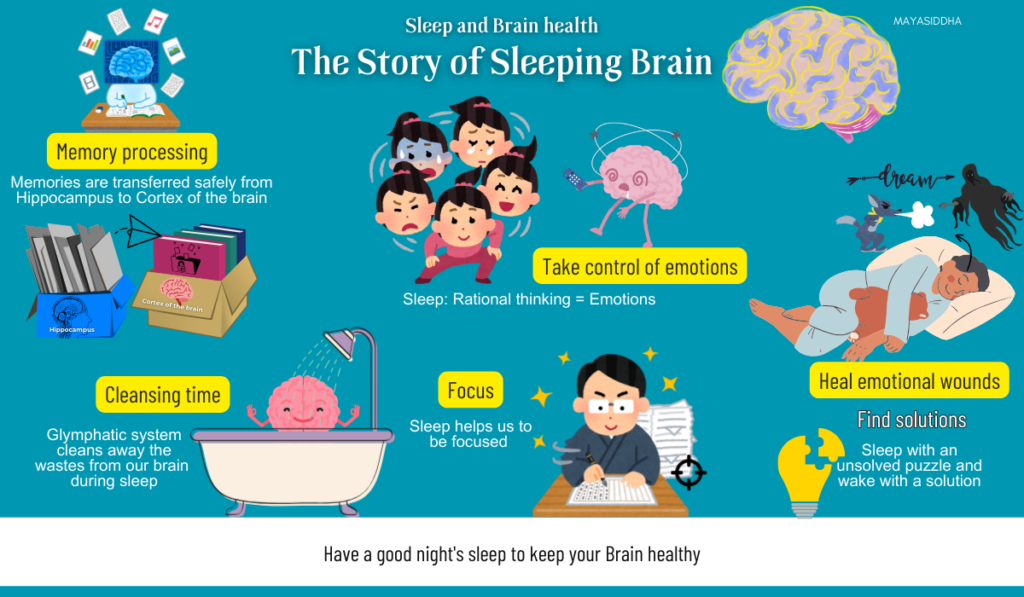
ANTI-AGING SECRET
Do you wanna look beautiful? Sleep well
From the previous blog, we know that sleep is essential for the repair and regrowth of our cells. If we don’t sleep enough our cells including skin cells can’t be repaired which makes us look dull and aged.
Are you feeling older than you are?
Sleep insufficiency fastens the Biological ageing (age of the cells in our body). As we have seen earlier, while awake our body utilises energy and produces waste. One such by-product of cell waste is Reactive Oxygen Species (ROS), which is an unstable substance.
ROS is like a bulldozer, it destroys everything from the cell wall to DNA. It must be counterbalanced by anti-oxidants to prevent damage.
| Melatonin, the dark hormone that is produced throughout the sleep period activates the antioxidant-producing genes that neutralize the ROS. |
memory loss due to depression
If we are awake for a long period, more ROS will be produced which will be too much to be balanced out. It will destroy our DNA which holds the blueprint of our life and damage telomeres, essential for cell division.
Young by calendar age but appear old
Normally, cells age, die and are replaced with new young cells. Telomere plays a vital role in cell division and ageing, it is a protective cap present at the end of chromosome which safeguards our DNA.
Each time a cell divides its telomere shortens. When it becomes too short or damaged, cells can’t divide. When the telomere is damaged by sleep insufficiency, cells stop dividing, which means the cells won’t participate in the normal cell cycle, which also means no new young cells will be formed. We will be left out with the old cells which makes us look old no matter how young we are by years.
Growing older early
Lack of sleep not only makes us look old, but it also makes us old as we are filled with less energetic aged cells. So, we also get issues associated with ageing like low energy, sagging, gray hair, joint pain, reduced mental function etc.
| Research shows that even a single night of insufficient sleep speeds up biological ageing. |
health benefits of sleeping
You may have probably noticed that you look fresh, energetic and beautiful after a good night’s sleep whereas you look tired, dull and less vibrant when you’re sleep-deprived. I have noticed it myself. If you haven’t observed it before, pay attention after reading this.
Are you the one taking treatment for pigmentation or skin issues? You need to know this.
Not having enough sleep will increase skin ageing. Throughout the day our cells including skin cells undergo low-level damage and get repaired while sleeping. If we don’t get enough sleep, our skin cells can’t be repaired effectively.
As a result, we will be left with fine lines, wrinkles, uneven pigmentation, dark circles, age spots, sagging skin etc at a young age. Have a good night’s sleep to look young, beautiful and vibrant.
Can premature ageing be reversed? The answer is yes. Research shows having enough nighttime sleep can reverse premature ageing.
Overnight anti-ageing therapy
Isn’t this wow, just by having a good night’s sleep we all can look young and beautiful without makeup? Next time try this overnight therapy and let me know your experience in the comment section.
LONGEVITY POTION
Do you wanna take care of your genes and wanna know the secret to live long? Sleep well
Work in shadow
We have already seen before how sleep deprivation can damage our DNA and telomeres with a bulldozer, ROS. The telomere is a protective cap present at the end of the chromosome that protects our DNA. Without the protective cap, our DNA will be exposed to damage and the exposed DNA won’t function well too.
Shuffle up the genetic codes
Research shows that sleep deprivation disregulates the functions of 711 genes. Insufficient sleep enhances the activity of genes responsible for inflammation, tumour growth and cardiovascular dis-eases and reduces the activity of genes responsible for normal immune function.
As sleep deprivation damages our DNA and telomere, it mismatches our genetic codes which brings up dis-eases and reduces cell division which leaves the damaged cells unrepaired. So, sleep deprivation effectively reduces the days we live in this world.
Have a good night’s sleep to protect the blueprint of your life and its protective cap to live a long healthy life.
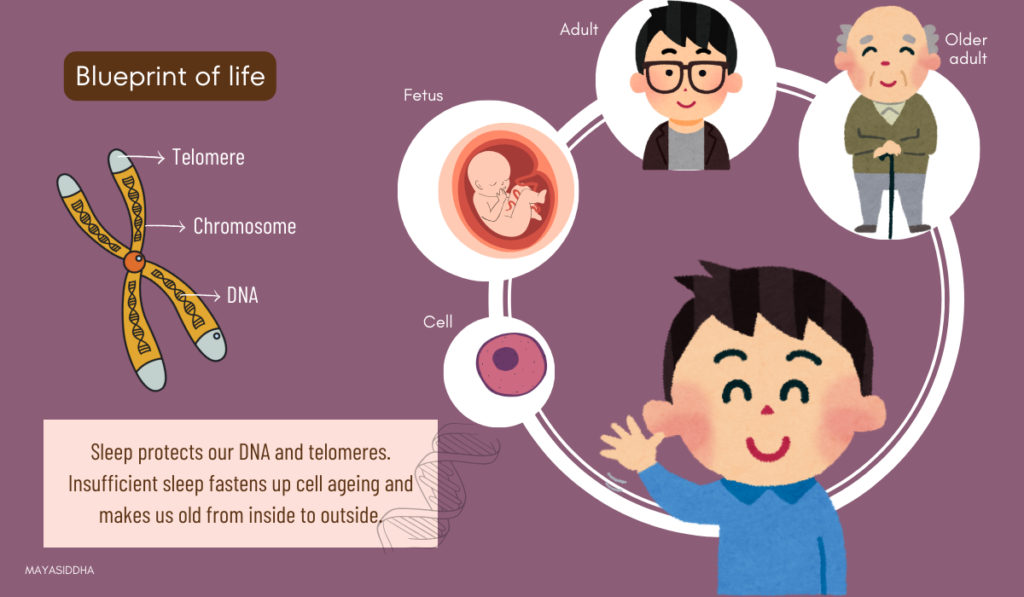
High blood pressure causes and treatments
WEIGHT MAINTENANCE
Do you wanna maintain a healthy weight? Sleep well
Who wanna lose weight by sleeping? I mean who doesn’t want this? The two main hormones that regulate hunger and give you the feeling of fullness are – Ghrelin and Leptin. Ghrelin is a hunger hormone/appetite stimulant and Leptin is a satiety hormone/obese protein/ appetite suppressor.
Out of balance
When you sleep enough the balance between these hormones remains stable; but if you don’t, there will be a hormonal imbalance. Lack of sleep increases the level of ghrelin and decreases the level of leptin. So, when you don’t sleep enough, you tend to eat a lot and won’t feel full because of the reduced level of leptin.
| The sleep-deprived body screams for food, that too BAD food. |
health benefits of sleeping
Are you struggling to keep up with a diet?
Out of shape: Research shows that lack of sleep increases the craving for unhealthy foods. Sleep insufficiency increases Hedonic hunger (Eating just for pleasure in the absence of true hunger). So you will automatically eat more junk foods, gain unhealthy weight and be at risk of developing obesity and all the other 24 health issues I mentioned above.
| Research shows sleep insufficiency increases the endocannabinoid level, one of its functions is to control hunger. Along with ghrelin-leptin imbalance, endocannabinoid also increases hunger. |
health benefits of sleeping
You’re not you when you don’t sleep enough. So, this is how getting enough sleep will help you maintain a healthy weight and provide you the willpower to keep up with the diet.
Does obesity cause heart problems? Yes.
Read this to know how.
HEALTHY HEART
Do you need a healthy heart? Who else wouldn’t?
The sympathetic nervous system (SNS) has a vital role in blood pressure management. SNS is activated during physical activity or in stressful situations. In such situations, they constrict our blood vessels and increase our heart rate and blood pressure to pump more blood needed for the vital organs.
Nighttime Blood pressure management
SNS activity is high during the awake period and low during sleep, which helps us feel calm and stay asleep. This also means that while sleeping our blood vessels relax which potentially reduces the blood pressure.
What are signs of infertility at a young age
| Sympathetic nervous system activity is reduced during Deep sleep. |
health benefits of sleeping
Sacrifice sleep to injure yourself
If we stay awake for a long period, the sympathetic nervous system will remain active. This means our blood pressure will remain high for an extended period, which damages our blood vessels, leading to various health issues.
| Research says even 1-2 hours of sleep deprivation increases the contraction rate of the heart. |
So, what health issues do we face if we sacrifice sleep?
Meet the great mechanic
As we have already seen, the damage we do to our body during the day is repaired during sleep. It is done with the help of a great mechanic, the Growth hormone (GH) which surges during sleep to repair us.
Substitute for the great mechanic
If we stay awake for a long period, we don’t produce enough growth hormone, which is essential for repair and regeneration. So, the damaged blood vessels can’t be repaired by GH due to sleep insufficiency.
| Research shows sleep deprivation reduces the level of growth hormone. |
health benefits of sleeping
So, here comes another hero, the cholesterol which takes over the mechanic position of the growth hormone. Cholesterol seals the damaged area in the blood vessels. Remember damaged blood vessels also attract calcium to bind on.
Sleep loss, Heart loss
If we continue to sacrifice sleep, cholesterol, calcium and other substances gradually build up in the damaged areas of the blood vessels, which narrows their pathway and makes it hard for the blood to flow through. This condition is called Atherosclerosis, the villain of the heart.
This can cause stroke, heart attack, heart failure, cardiac arrest and kidney dis-ease. Day by day calcium deposition on the damaged blood vessels causes calcification.
If you have a block in your blood vessels, the Doctor might blame cholesterol and advise you to lower the fat intake.
Innocent cholesterol! Simply minding its repair job.
If we don’t sleep enough, we have a higher chance of getting high blood pressure, atherosclerosis, calcification, stroke, heart attack, heart failure, cardiac arrest and kidney dis-ease.
Have enough good night’s sleep, especially deep sleep to save your heart and kidneys. And not to blame cholesterol.
NO MORE SUGARY BODY
Nobody wants to be Diabetic, right?
Relation between stress and sugar
We already know that the longer we are awake our SNS will remain highly active. SNS produce a stress hormone, cortisol. It directly suppresses the release of insulin, the key to opening cells and filling them with glucose to maintain the sugar level in our blood.
Walking sugar
If we don’t sleep enough, cortisol levels remain high which in turn lowers insulin levels. Without enough insulin, our cells can’t efficiently intake glucose, so the left-out glucose circulates in the blood, leading to high blood sugar. We will become diabetic, bloody sweet (blood with high sugar).
| Research proves sleep deprivation increases insulin resistance. |
health benefits of sleeping
Sleep less, resist insulin
We have already seen how sleep deprivation increases our hunger for bad foods. The sleep-deprived individuals intake more carbs and sugary foods and too much glucose makes our cells unresponsive to insulin. Again we become bloody sweet.
If you don’t want to be too sweet, have a good night’s sleep.
Does leaky gut cause weight loss
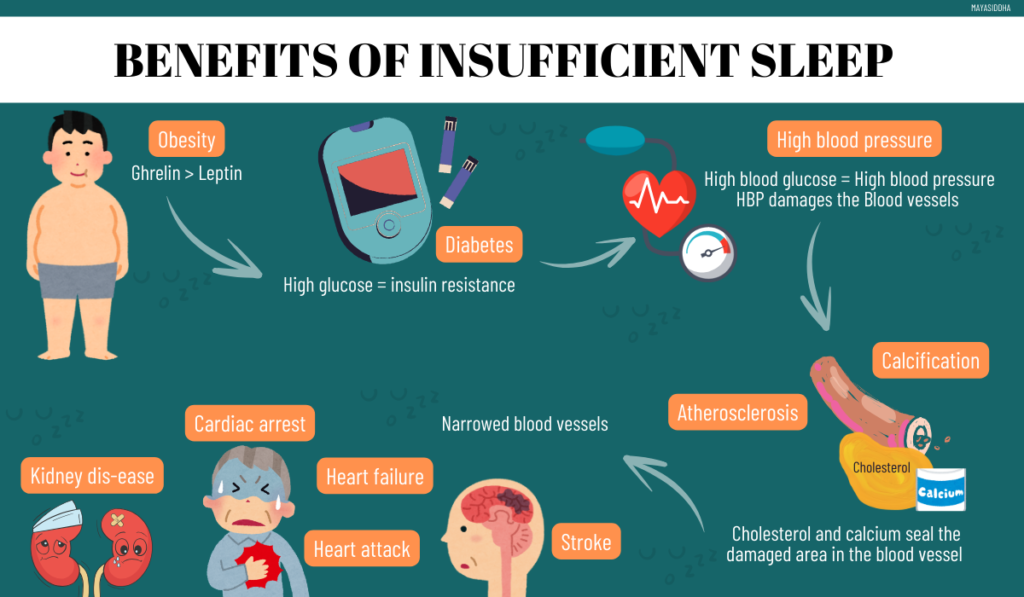
BEST PARTNERS
Do you wanna maintain a healthy relationship with your partner? Sleep well
You may have already heard of testosterone, the hormone responsible for maintaining male sexual characteristics and reproductive functions. It is crucial for sperm production, ejaculation, increased sex drive, growth of testicles, prostate and penis, building muscles, maintaining bone density and improving memory and concentration.
Testosterone cycle
Usually, testosterone levels peak around 7 am to 10 am, gradually decrease throughout the day and then slowly rise after midnight. If you follow a regular sleep cycle aligned with the circadian rhythm, the testosterone cycle will remain normal.
Insufficient sleep may lead to divorce
If you don’t sleep enough and stay awake for a long period, your testosterone cycle will be disturbed. It leads to reduced sex drive, low sperm count and decreased testicle size which further lowers testosterone levels. Low testosterone = low energy, weak bones, reduced muscle mass and difficulty concentrating.
| Research shows that insufficient sleep leads to a 29% reduction in sperm count with most of the sperm produced having deformities that will affect the ability of the sperm to swim and reach the egg. |
health benefits of sleeping
Now let’s move to the women’s section.
Are you taking or gonna take hormonal therapy? Wait. You need to read this.
2nd lead in the story of the menstrual cycle
The menstrual cycle is regulated by these hormones – Follicle-stimulating hormone (FSH), Luteinizing hormone (LH), Estrogen and Progesterone. They work together to develop the follicle, release the egg and maintain the endometrial lining for implantation of the fertilized egg. Other than reproductive function, they maintain our mental health too.
Hero of the menstrual cycle story
You probably may not have heard of Melatonin, the dark hormone’s role in regulating our menstrual cycle. But you may have heard about melatonin’s role in initiating our sleep cycle. How does this sleep-initiating hormone influence our menstrual cycle?
Lead role of melatonin
Melatonin is a dark hormone which means it is produced only at night and that too in the dark by the pineal gland in our brain and in our ovarian follicles. Though follicles produce melatonin on their own, they also absorb it from the blood. Intrafollicular melatonin protects the follicle and egg, regulates ovulation and maintains a balanced level of estrogen and progesterone.
| Melatonin protects the egg and follicle due to its antioxidant properties. |
health benefits of sleeping
High melatonin level = Low estrogen level & High progesterone level
Estrogen
Melatonin remains lower in the follicular phase than in the luteal phase. Low melatonin means high estrogen. Raised estrogen thickens our endometrium and increases our sex drive, signalling to our body that an egg is going to be released, so prepare yourself for conception.
Progesterone
Melatonin levels increase in the luteal phase which matures the follicle and releases the egg. After the release of an egg, the raised melatonin level increases progesterone level which further thickens endometrium for the implantation of the fertilised egg.
| Progesterone hormone not only plays a role in the story of the menstrual cycle, but it also induces sleep. That’s why we feel more sleepy and feel like we need more sleep before our periods. |
health benefits of sleeping
If fertilization occurs melatonin and progesterone levels will remain high to protect the fertilised egg and prevent further ovulation.
Everything happens correctly only if we sleep enough and at a regular time aligned with the circadian rhythm.
If we are awake for too long and don’t sleep enough, enough melatonin won’t be produced. Low melatonin = high estrogen and low progesterone.
| Being exposed to bright lights and using mobiles, laptops & iPads after sunset will delay the onset of the production of melatonin which means sleep hits you late. “Late sleep = reduced nighttime sleeping hours = fewer melatonin produced” |
health benefits of sleeping
So, estrogen and progesterone levels go out of imbalance, which leads to irregular periods, no periods, heavy bleeding, immature follicles, no ovulation, reduced ability to get pregnant, miscarriage due to low progesterone after fertilisation, spotting, cysts in breasts and uterus, thyroid disorders, reduced sex drive, weight gain, PCOS, mood swings, irritability and depression etc.
Those who are taking melatonin pills and trying for pregnancy. Be alert!
Extremely high levels of melatonin can suppress ovulation.
| Research shows insufficient sleep leads to a 40% reduction in FSH levels. FSH stimulates the follicle in the ovary to grow and prepares the egg for ovulation. |
health benefits of sleeping
Have a good night’s sleep to be fertile, have strong muscles and bones and avoid menstrual issues and divorce.
GREAT PHYSIQUE
Do you wanna build muscles? Sleep well
No more repair
We know that our body repairs us every night while we are sleeping. When we don’t sleep enough, we can’t produce enough growth hormone, so we can’t repair and regenerate our damaged muscles.
Testosterone for muscles
Earlier we saw the role of testosterone in muscle growth and how insufficient sleep can reduce its level. So, if we don’t sleep enough, we will have low testosterone and obviously, we can’t grow muscles.
We need protein
We know protein is essential for growth, especially for muscle growth. Sleep deprivation reduces the production of muscle growth protein, which means we can’t grow and regenerate muscles. Insufficient sleep also increases catabolism rather than anabolism, which means protein is taken away from muscles instead of using protein to build muscles, leading to muscle loss.
| Research shows that even a single night of insufficient sleep reduces the rate of production of muscle growth protein by 18%. |
health benefits of sleeping
Insufficient sleep reduces the level of growth hormone, testosterone and insulin which are vital for muscle repair and regeneration, growth and restoration of energy.
If you are trying to gain muscles or doing workouts, read it.
Sleep deprivation reduces muscle mass not fat. If you don’t have enough good night’s sleep, you can’t gain muscle and repair and regenerate the damaged muscles.
Have a good night’s sleep to prevent muscle loss.
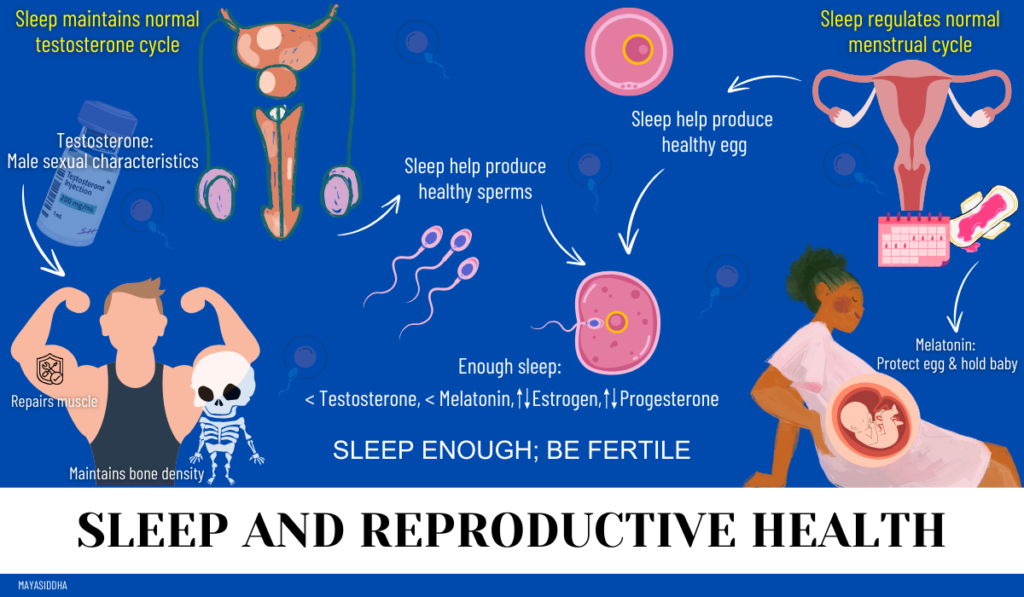
BE IMMUNE
Are you willing to spend a lot of money on immune support supplements? You need to know this
Why do we wanna spend money on pills when we have sleep? Yes, having enough sleep provides us with the immune power we need.
Security
You may have studied our body’s protective mechanism in biology. The immune system is the shield that protects us from viruses, bacteria, fungi, parasites etc.
Tools of security
Skin, Stomach acid, Saliva, Tears, Mucus, Gut Microbiota, CD4 cells, CD8 cells, regulatory T cells, Memory T cells, B cells, Basophils, Eosinophils, Neutrophils, Monocytes, Macrophages, Mast cells, Dendritic cells and Natural killer (NK) cells are the bodyguards in our immune system.
Batteries of the tools
Growth hormone, Melatonin, Leptin and Cytokines are the batteries that signal the immune system to do its job. When a pathogen enters the body, the batteries impulse the tools of our immune system to get into action and shield our body.
Offence and Defence
These batteries are pro-inflammatory, which means they can cause inflammation. Inflammation is a natural response from our immune system. When a pathogen offences us, our body as a defence mechanism turns on inflammation on the affected site. Inflammation calls in the bodyguards of our immune system to take control of the damage caused by the pathogen.
SLEEP AND THE IMMUNE SYSTEM
Simple, our body repairs during sleep. So, the impulsive activities of these pro-inflammatory molecules are normally high during sleep, especially during deep sleep and down during the day.
Sleep increases the levels of pro-inflammatory cytokines, which further induce sleep, but this benefit happens only in healthy conditions.
Cortisol and pro-inflammatory molecules
We already knew during awake, SNS remains active which means cortisol is active too. It delivers anti-inflammatory effects by suppressing the function of our immune system. During sleep, cortisol levels drop, so the immune system and its inflammatory activities increase.
Sleep loss and impaired immune functions
When we don’t sleep enough the shift work of our immune system changes from nighttime to day. This disturbs the balance between cortisol and pro-inflammatory cytokines. As a result, the pro-inflammatory activities remain high both during the day and night, which means inflammation occurs at both times and is out of control.
| Research shows sleep deprivation raises the levels of pro-inflammatory cytokines like IL (Interleukin)-6 and TNF (Tumour necrosis factor)-α which cause inflammation and pain. |
Chronic inflammation leads to cancer, diabetes, cardiovascular dis-ease, brain damage, autoimmune dis-ease, arthritis etc.
Impaired immune system and sleep loss
Earlier we saw that pro-inflammatory cytokines induce sleep, but at high levels, they disturb our sleep architecture, cause sleep fragmentation, reduce deep sleep and increase REM sleep. That is one reason why people with inflammation issues often complain about sleeping problems.
| We may be familiar with the term CRP, a marker of inflammation. Research shows insufficient sleep elevates CRP levels. Why, because sleep deprivation raises the inflammation level in our body. |
Research shows those who sleep less often become sick. The reason is impaired immune function and reduced levels of T cells and B cells, essential for fighting against pathogens.
Sleep and immunological memory
When a pathogen enters our body, our immune system eliminates the pathogen and also remembers it, but initially, this process takes some time. So, if the same pathogen attacks again, our immune system eliminates it much more quickly as it already knows how to fight it.
This principle is used in vaccinations. Vaccines containing dead/weakened/live/part of pathogens are injected into our body and our immune system fights them off and remembers them, so this is how we are immunized artificially.
Vaccine is of no use when you sleep less
Research shows that insufficient sleep reduces our immune system’s ability to fight against them and remember them for future protection.
| Not having enough sleep before and after vaccination reduces the effects of the vaccine as our body’s immune system can’t respond effectively to them. |
Have a good night’s sleep to retain a properly functioning immune system, avoid falling sick often, prevent inflammation and escape from the world’s leading dis-ease which leads to death.
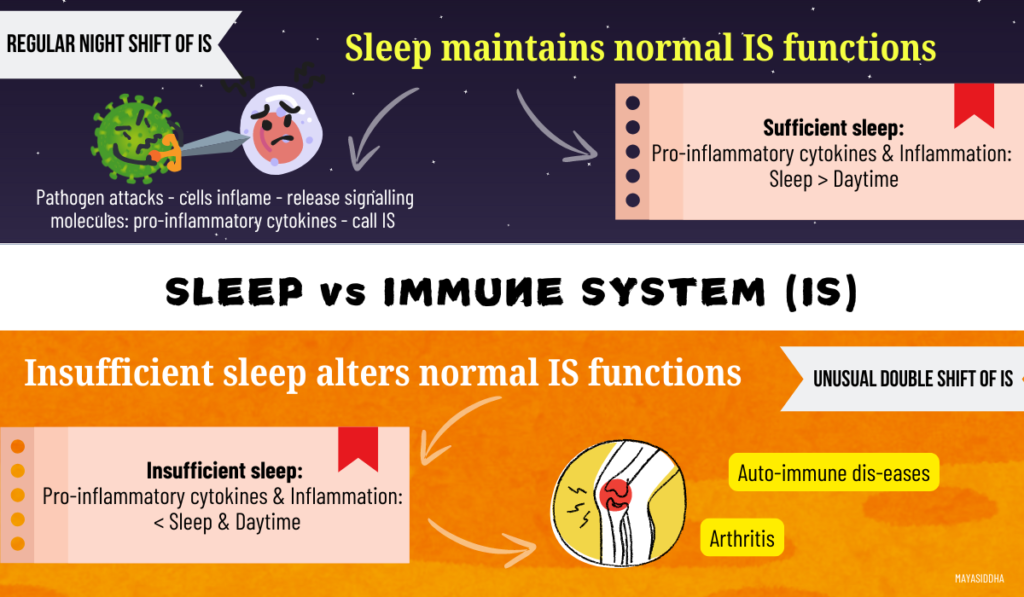
BE CANCER FREE
Everybody is a cancer patient
Everyone forms cancer cells in their body at times, but our body restricts their growth and kills them via the tools of our immune system and using various strategies. But, we can get these protective and preventive services only if we sleep enough, which is essential for maintaining optimal immune function.
How does the immune system eradicate cancer cells?
NK cells and cancer
Natural killer (NK) cells target and destroy the cancer and infected cells. NK cells put holes in the affected cells with the help of protein, perforin and inject an enzyme, granzymes that kills the cells. Isn’t this wow?
Sleep and NK cells
We already know we need enough sleep to maintain flawless immune function. Insufficient sleep decreases the level of NK cells, so we can’t efficiently eliminate cancer cells. It may lead us to become cancer fighters.
| Shocked! Research shows that sleep deprivation reduces the levels of NK cells by 70%. |
Melatonin and cancer
We know our sleep initiator, Melatonin turns on the genes that produce antioxidants, which protect our cells from damage. Actually, melatonin can prevent and kill cancer cells due to its anti-cancerous effect.
It destroys the cancer cells by inducing apoptosis – cell suicide, inhibiting angiogenesis – cutting off the blood supply to cancer cells, preventing metastasis – spreading of cancer and altering the genetic codes – turning off the tumour-inducing and tumour growth-promoting genes.
Sleep loss and cancer
Tumour-associated macrophages (TAM) – M1 suppress cancer cells and M2 promotes cancer cell growth. Insufficient sleep increases M2 levels and reduces M1 levels. This also leads us to become a cancer fighter.
Isn’t this wow, we can prevent and kill cancer cells just by sleeping. Have a good night’s sleep to be cancer-free.
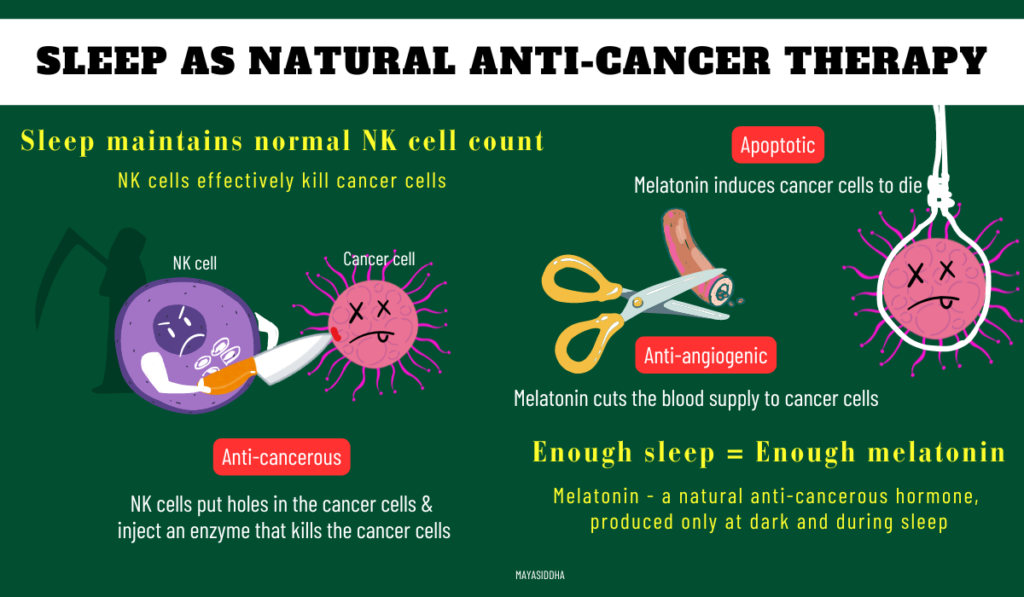
HEALTHY TUMMY BRINGS JOY
Happy tummy. Happy me.
We are not humans: Do you know that we are 90% made of bacteria?
Gut microbiota (GM)
We have more than millions of microbes in our gut. In that bacteria are of more numbers. Some are good ones, which means they help us to stay healthy, while some are bad ones, which can cause dis-eases.
Maintain the balance
The good bacteria always keep bad bacteria in control, they never give space for them to grow and cause trouble. But when the balance between good and bad bacteria is disturbed, it can lead to various health issues.
F: B – Firmicutes and bacteroidetes are families of good bacteria present in large populations in our gut. Among these firmicutes are in larger quantities than bacteroidetes and their ratio is used to determine intestinal homeostasis. They digest the indigestible carbohydrates in our foods and produce SCFAs (Short chain fatty acids – Butyrate, Acetate, Propionate).
GM provides us with energy and maintains the intestinal barrier, immune function and brain health.
Bacteria energize us
SCFAs are the energy source for intestinal cells.
Bacteria guard us
The first layer of our gut is the GM. Through SCFAs, they communicate with our intestinal cells and tell them to produce more mucus from goblet cells. This mucus forms a protective layer along the intestines which reduces intestinal permeability so that good and bad bacteria can’t escape/invade other organs.
Bacteria shield us
As I said earlier, GM is one of the bodyguards in our immune system. The SCFAs they produce communicate with our immune system, by which they help to protect us from pathogens and bad bacteria. SCFAs also show anti-inflammatory effects by suppressing the production of pro-inflammatory cytokines.
GM, the headmaster
We know our brain is the master of our body, but this master has a headmaster.
How many of us know that we have a second brain? We do have. Our GM is the second brain, also called the Forgotten organ. Through SCFAs, they communicate with the nervous system present in our gut and modulate our brain’s function. Gut health = Brain health. If you wanna take care of your brain, take care of your gut.
We can get these benefits from our GM only if we sleep enough. So, what happens if we don’t sleep?
SLEEP AND GM
Insufficient sleep disturbs the gut microbial balance. Bad bacteria > Good bacteria. Sleep loss also alters the F: B ratio. How does sleep loss disturb the microbial balance?
We already know, that awake for a long period = SNS active = ↑ Cortisol. Hormones directly interact with the GM and alter their functions.
– Whole Gut Transit Time (WGTT)
WGTT is the time taken for food to pass via the gut, normally it takes around 10 – 73 hours. GM has a bidirectional effect on WGTT. GM composition can alter WGTT and vice versa. The longer or shorter period the food stays in our gut affects the proportion of GM.
– Coritosl and WGTT
Cortisol alters this gut transit time, leading to conditions like Irritable bowel syndrome (IBS) etc.
– Cortisol and intestinal barrier
High cortisol level affects the mucus production from goblet cells. Less mucus = damaged intestinal barrier = increased intestinal permeability. With increased intestinal permeability, bacteria move from the gut to other sites in our body and toxins get absorbed easily without being processed, leading to cysts formation and leaky gut etc.
– Cortisol and the immune system
We already know how cortisol and sleep insufficiency affect immune function. High cortisol impairs GM function, which impairs their communication with the immune system. As a result, its anti-inflammatory effects lower and the pro-inflammatory cytokines level rises, leading to inflammation – Inflammatory bowel dis-ease (IBD) and brain inflammation etc.
– Sleep loss and AM
Insufficient sleep reduces the amount of bacteria, Akkermansia muciniphila in our gut. This bacteria maintains our blood sugar level and prevents cancer. A low quantity of this bacteria increases the risk of developing diabetes. Research shows those who have no/low quantity of this bacteria don’t respond well to cancer immunotherapy treatment.
– Sleep loss and F: B ratio
Insufficient sleep increases the firmicutes count and lowers the bacteroidetes count, leading to increased cravings for carbohydrates. We already know, that sleep loss alters ghrelin and leptin levels, which increases our cravings for bad foods and having bad foods further alters GM proportions.
Have a good night’s sleep to protect our intestinal barrier, maintain proper GM proportion, immune functions and brain health and prevent us from becoming bloody sweet and cancer fighters.
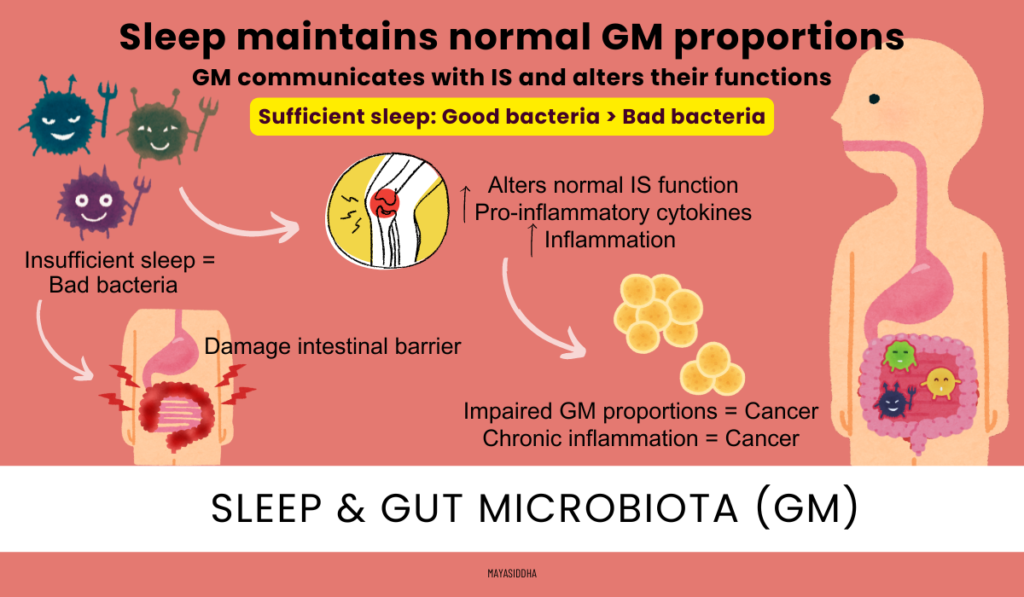
BE A SUPERHUMAN
Sleep is essential for us to survive better. It restores energy, repairs and regenerates our cells and rejuvenates our body. Enough nighttime sleep is vital for us to prevent Alzheimer’s, neurodegenerative dis-eases, neuroinflammation, memory loss, loss of concentration, cravings for bad foods, obesity, muscle loss, atherosclerosis, calcification of blood vessels, high blood pressure, stroke, heart attack, heart failure, cardiac arrest, kidney dis-ease, diabetes, infertility, hormonal imbalance, fatigue, premature ageing, age-related health issues, depression, anxiety, paranoia, psychosis, Post-traumatic stress disorder (PTSD), accidents, overwhelmed emotions, DNA and telomeres damage, intestinal barrier damage, gut microbiota imbalance, immune function impairment, irritable bowel syndrome, inflammatory bowel dis-ease, leaky gut, arthritis, auto-immune dis-eases, cancer and metastasis of cancer. Without enough good night’s sleep, we will die one day because of the dis-eases we earn by sacrificing sleep.
| Sleep well to become a superhuman. |
Reference
1. Walker, M., & West, S. (2017). Why we sleep: Unlocking the power of sleep and dreams. Unabridged. New York, Simon & Schuster Audio.
2. Carroll, J. E., & Prather, A. A. (2021). Sleep and Biological Aging: A Short Review. Current Opinion in Endocrine and Metabolic Research, 18, 159. https://doi.org/10.1016/j.coemr.2021.03.021
3. Greendale, G. A., Witt-Enderby, P., Karlamangla, A. S., Munmun, F., Crawford, S., Huang, M., & Santoro, N. (2020). Melatonin Patterns and Levels During the Human Menstrual Cycle and After Menopause. Journal of the Endocrine Society, 4(11). https://doi.org/10.1210/jendso/bvaa115
4. Fang, L., Li, Y., Wang, S., Yu, Y., Li, Y., Guo, Y., Yan, Y., & Sun, P. (2019). Melatonin induces progesterone production in human granulosa-lutein cells through upregulation of StAR expression. Aging (Albany NY), 11(20), 9013-9024. https://doi.org/10.18632/aging.102367
5. Tamura, H., Takasaki, A., Taketani, T., Tanabe, M., Kizuka, F., Lee, L., Tamura, I., Maekawa, R., Aasada, H., Yamagata, Y., & Sugino, N. (2012). The role of melatonin as an antioxidant in the follicle. Journal of Ovarian Research, 5, 5. https://doi.org/10.1186/1757-2215-5-5
6. Lamon, S., Morabito, A., Knowles, O., Vincent, G. E., Condo, D., Alexander, S. E., Garnham, A., & Aisbett, B. (2020). The effect of acute sleep deprivation on skeletal muscle protein synthesis and the hormonal environment. Physiological Reports, 9(1). https://doi.org/10.14814/phy2.14660
7. Irwin, M. R. (2023). Sleep disruption induces activation of inflammation and heightens risk for infectious disease: Role of impairments in thermoregulation and elevated ambient temperature. Temperature: Multidisciplinary Biomedical Journal, 10(2), 198-234. https://doi.org/10.1080/23328940.2022.2109932
8. Li, Y., Li, S., Zhou, Y., Meng, X., Zhang, J., Xu, P., & Li, B. (2017). Melatonin for the prevention and treatment of cancer. Oncotarget, 8(24), 39896-39921. https://doi.org/10.18632/oncotarget.16379
9. Sun, J., Fang, D., Wang, Z., & Liu, Y. (2023). Sleep Deprivation and Gut Microbiota Dysbiosis: Current Understandings and Implications. International Journal of Molecular Sciences, 24(11). https://doi.org/10.3390/ijms24119603
10. Paudel, D., Uehara, O., Giri, S., Yoshida, K., Morikawa, T., Kitagawa, T., Matsuoka, H., Miura, H., Toyofuku, A., Kuramitsu, Y., Ohta, T., Kobayashi, M., & Abiko, Y. (2022). Effect of psychological stress on the oral-gut microbiota and the potential oral-gut-brain axis. The Japanese Dental Science Review, 58, 365-375. https://doi.org/10.1016/j.jdsr.2022.11.003
11. Lee, Y. Y., Erdogan, A., & C Rao, S. S. (2014). How to Assess Regional and Whole Gut Transit Time With Wireless Motility Capsule. Journal of Neurogastroenterology and Motility, 20(2), 265-270. https://doi.org/10.5056/jnm.2014.20.2.265
12. McMullan, C. J., Curhan, G. C., & Forman, J. P. (2016). Association of short sleep duration and rapid decline in renal function. Kidney International, 89(6), 1324-1330. https://doi.org/10.1016/j.kint.2015.12.048.
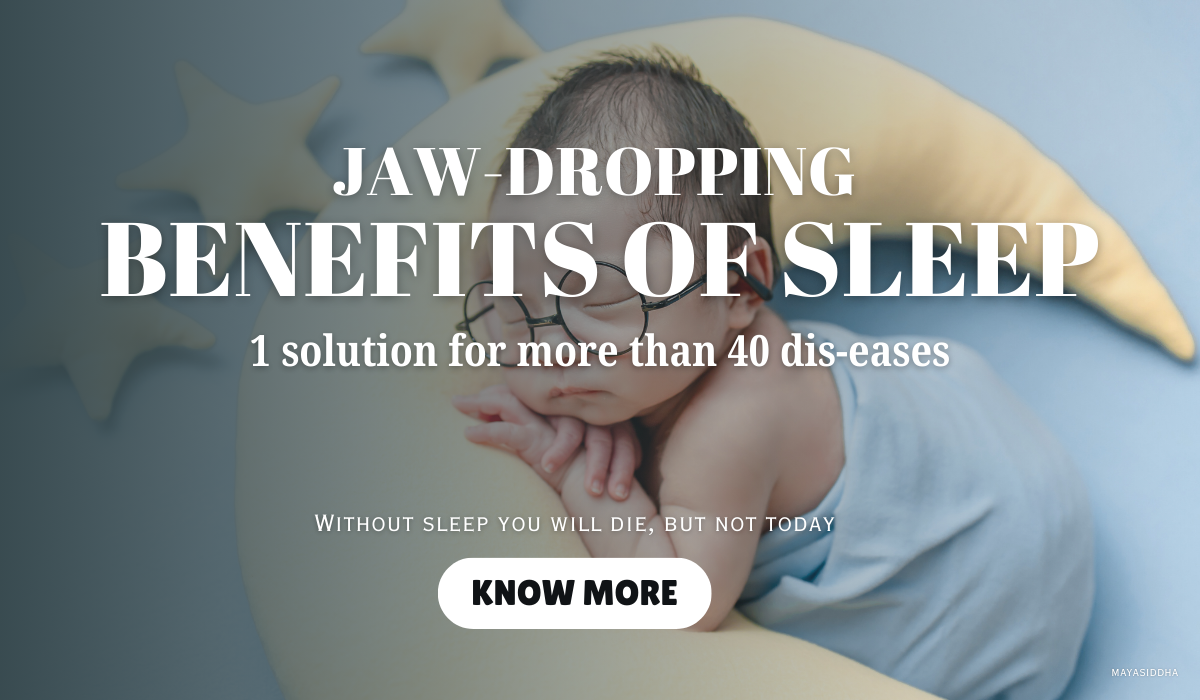

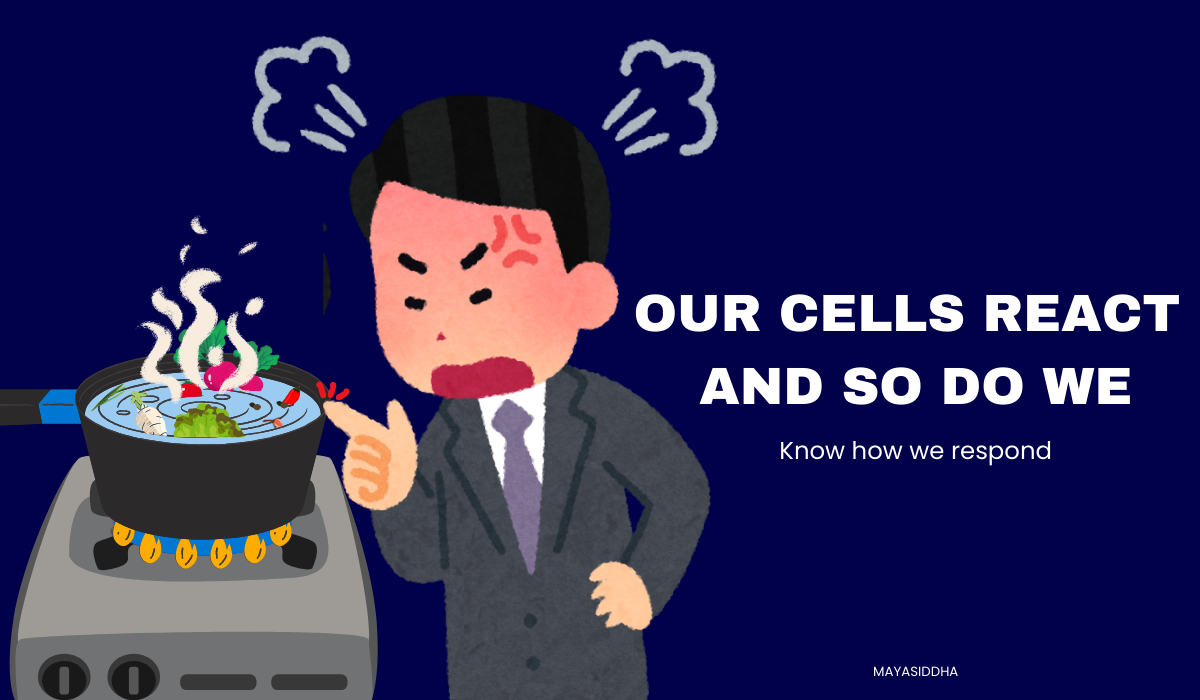

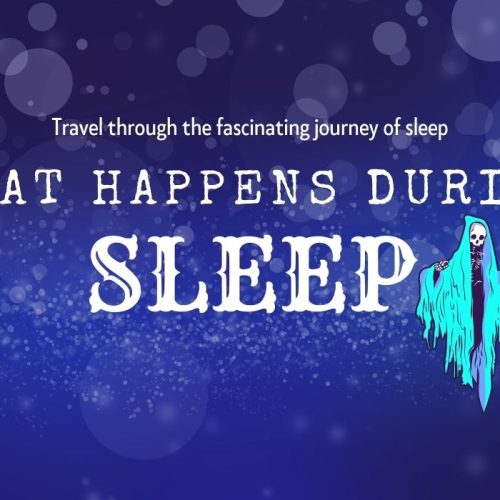
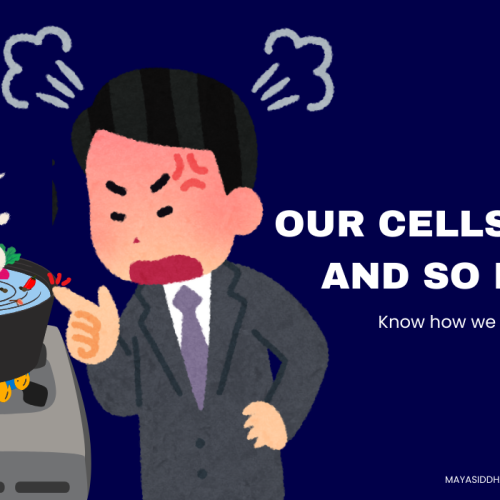
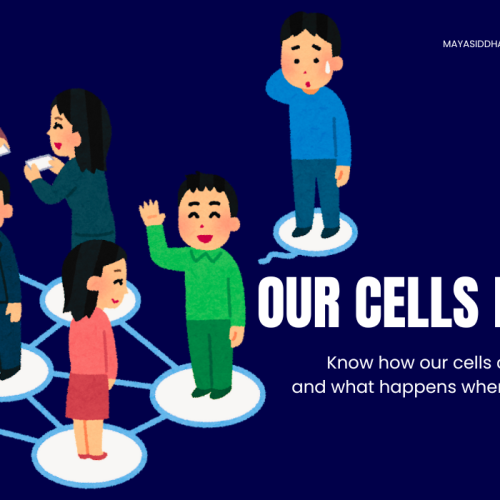
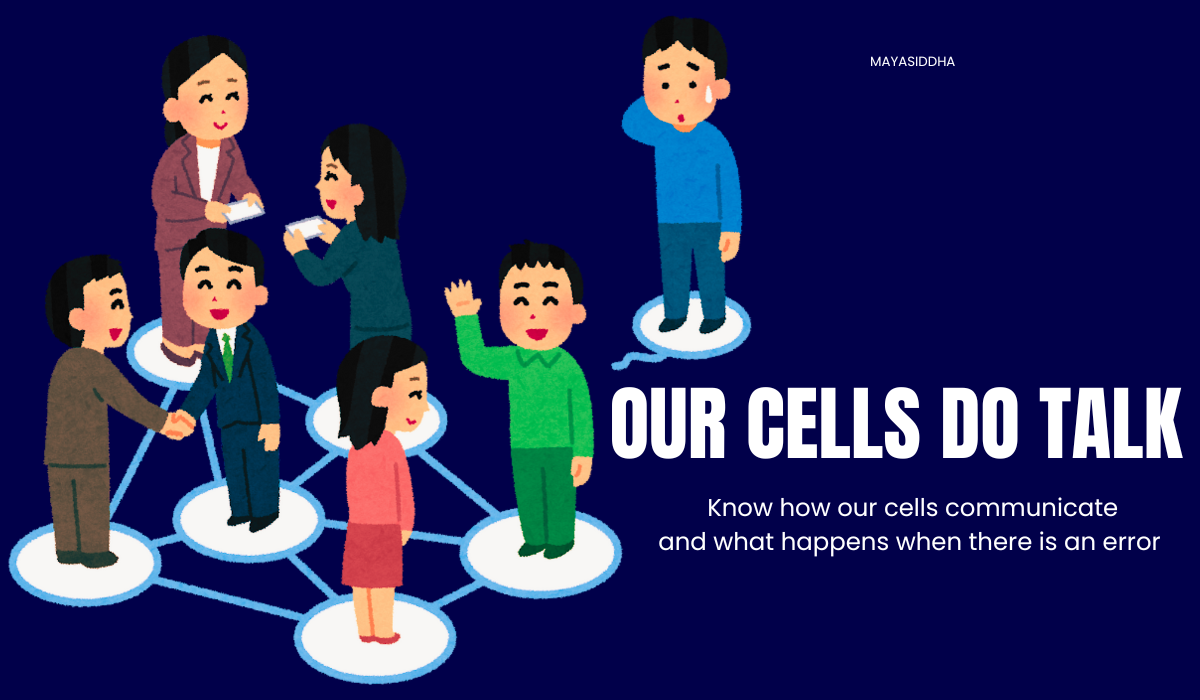
6 Comments
Can I ask a quick question about your site?
Rojesk
Yes, you can.
Reading this gives me the motivation to take better care of myself. Thank you for empowering us to make healthier choices.
Thanks Dr.
Thanks a lot. Sleep comes the first while focusing on your health. Have a good night’s sleep everyday.
Thanks Dr. for sharing this important information. It’s crucial to stay informed about our health.
Great explanation on this topic! It really helped clarify some things for me.
Thanks a lot for your thoughtful words. Stay tuned to know more about healthcare. Have a good night’s sleep each day.